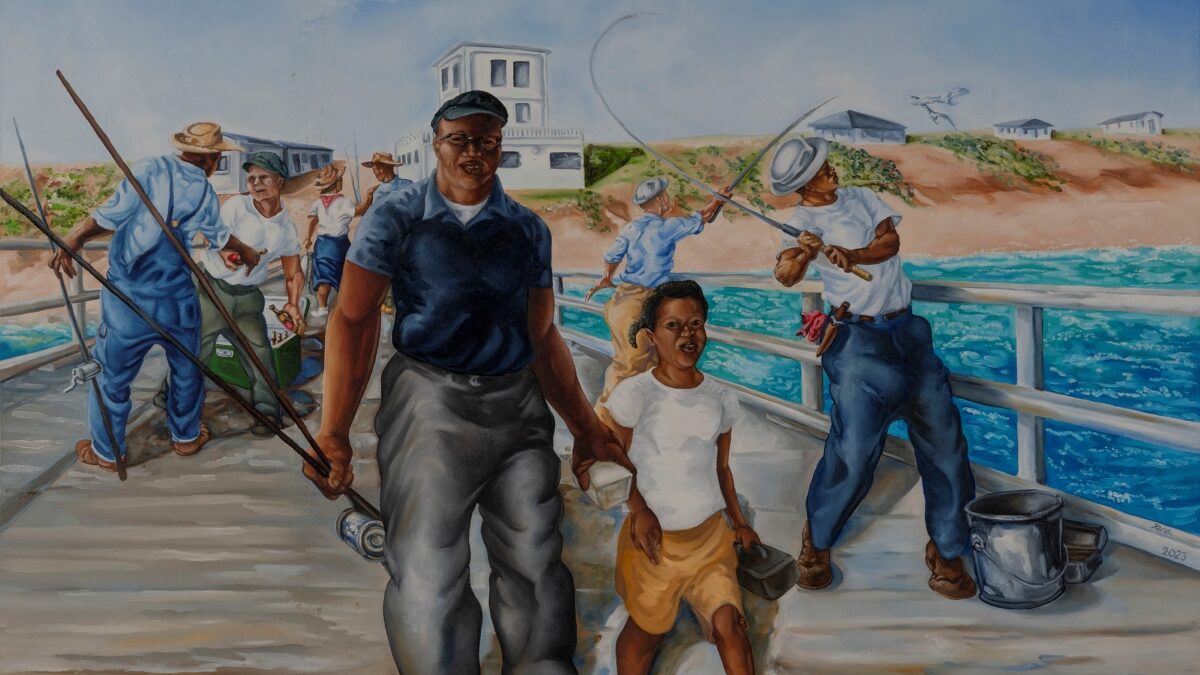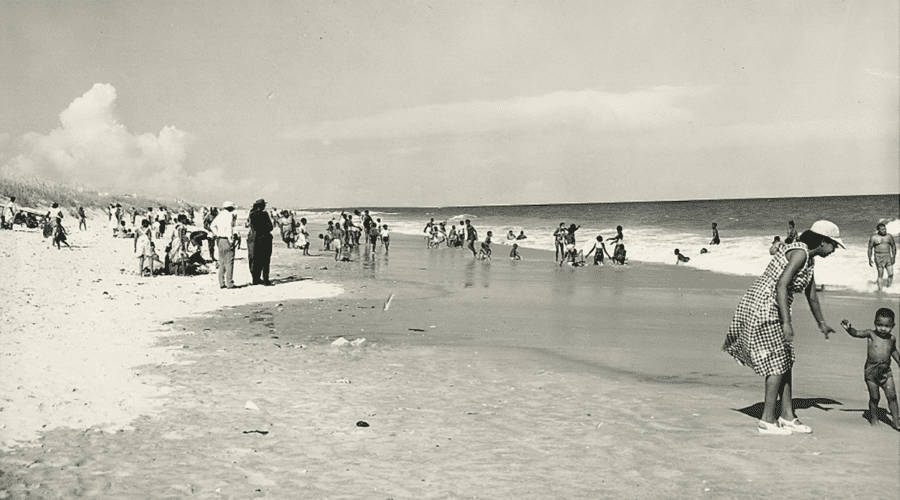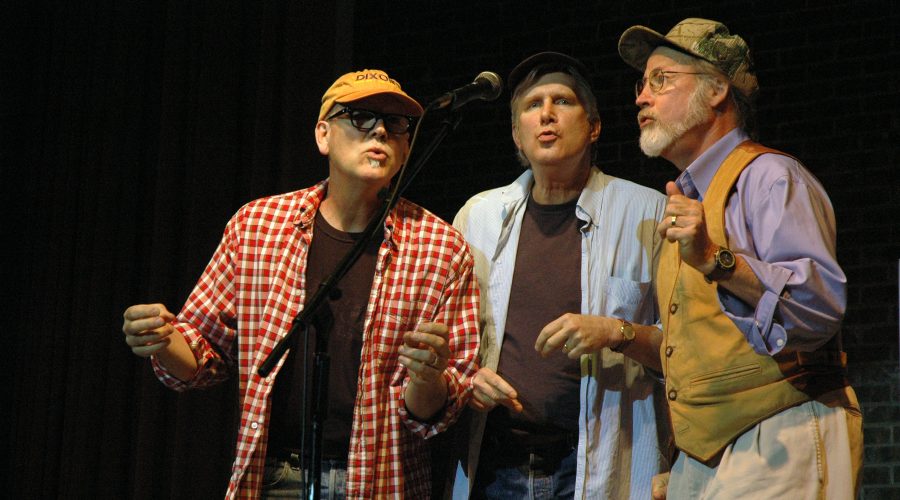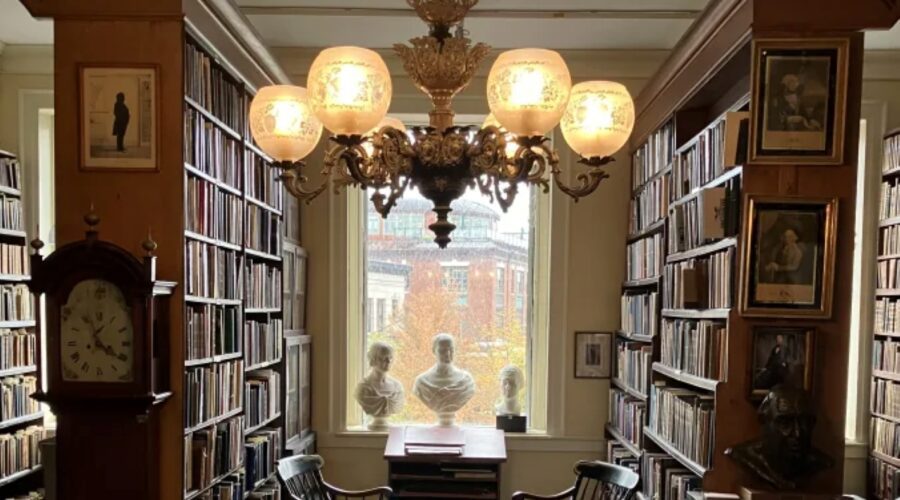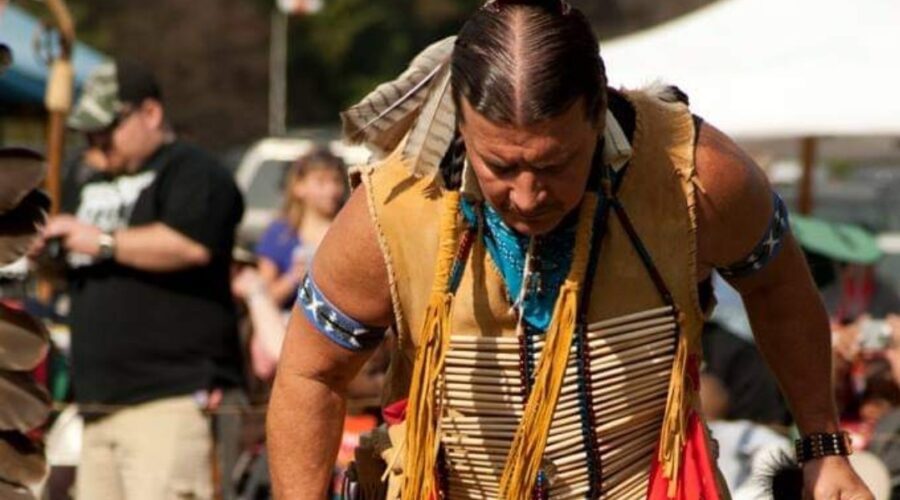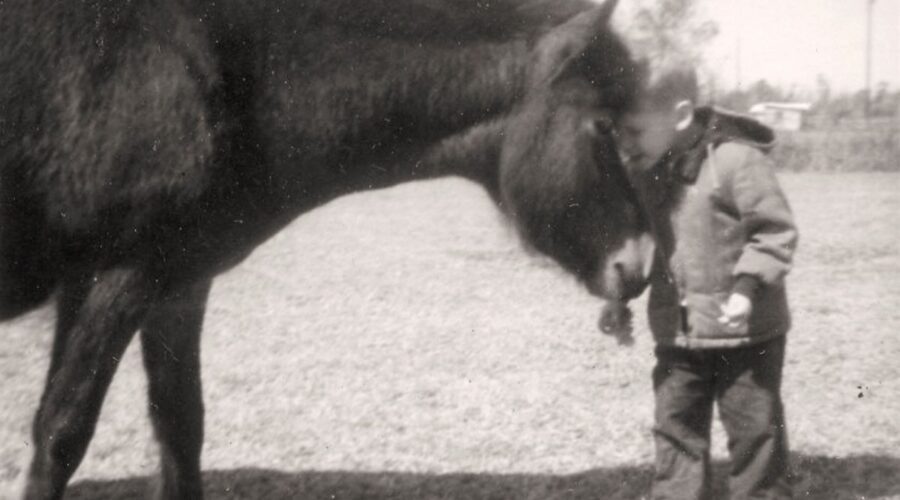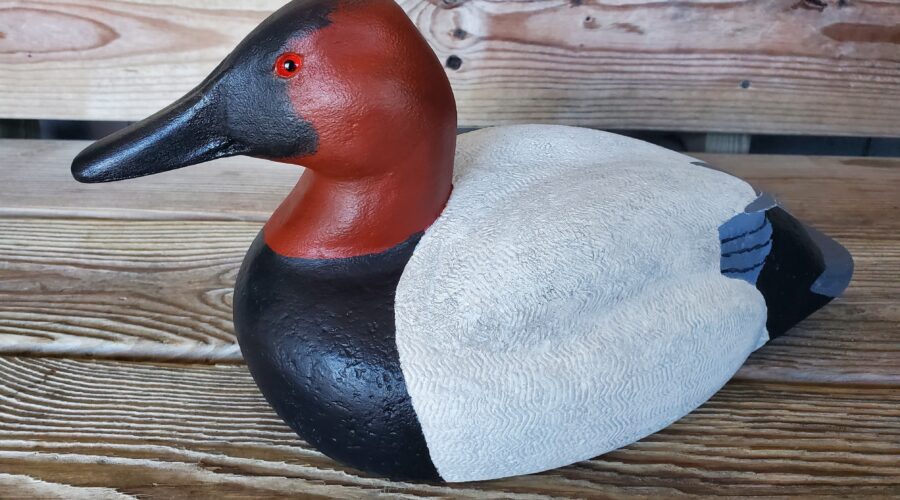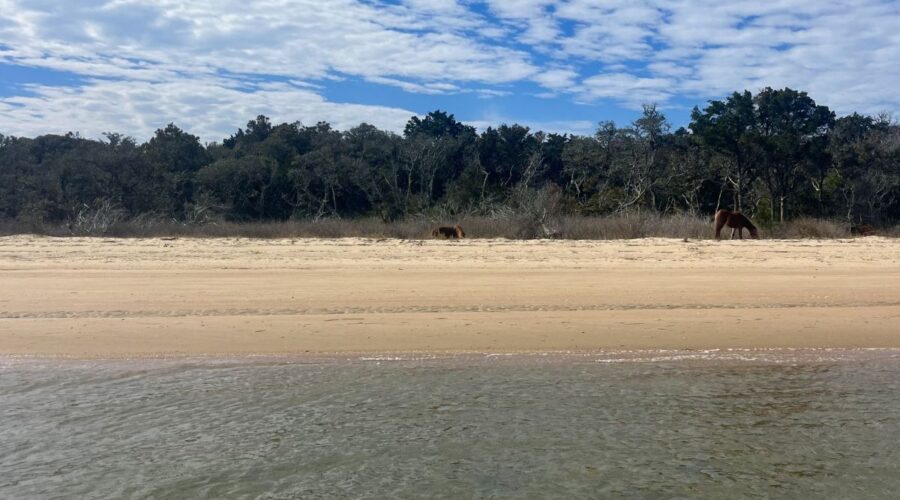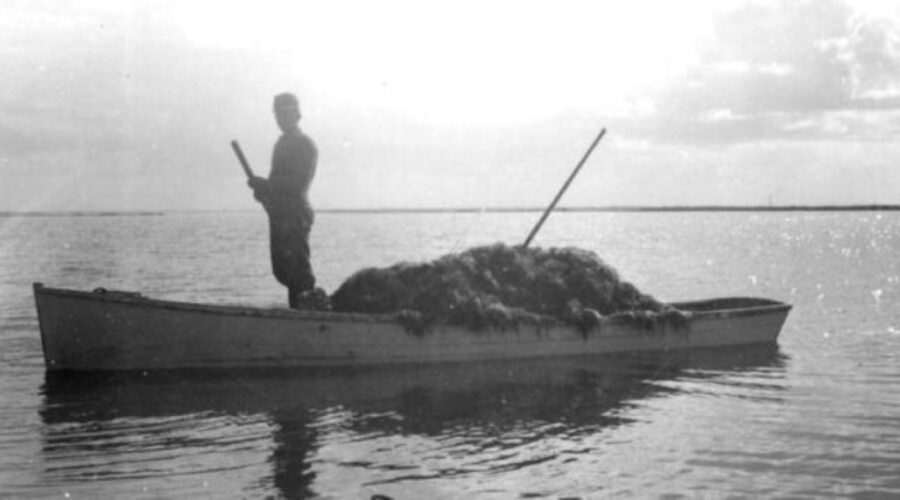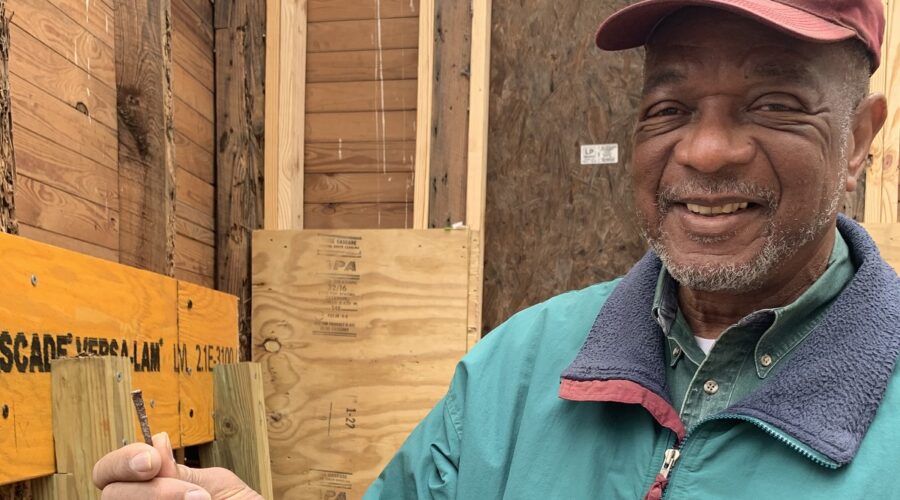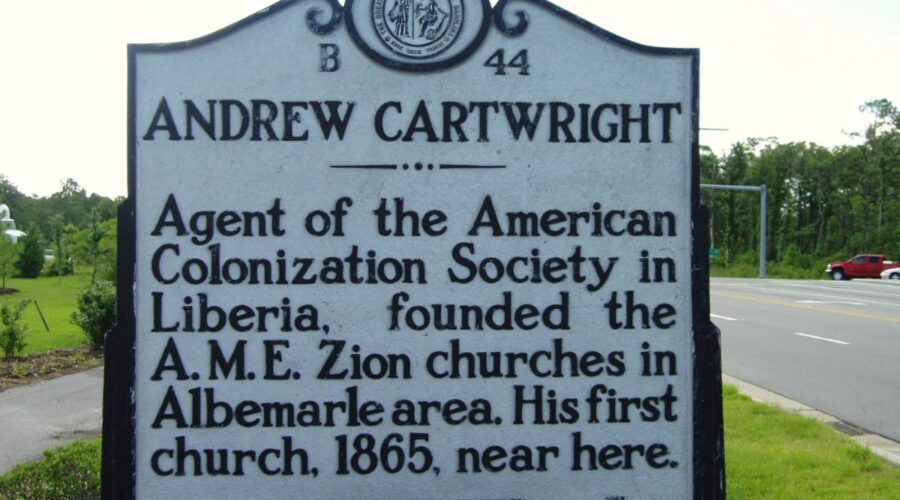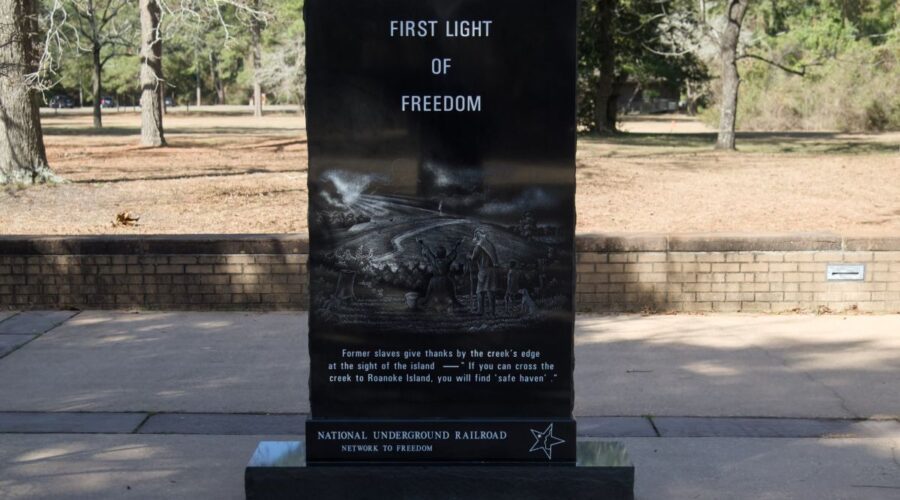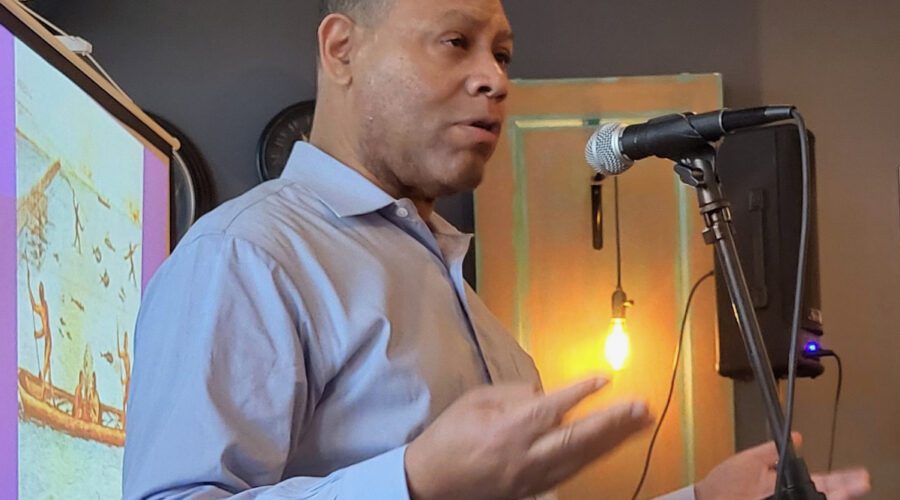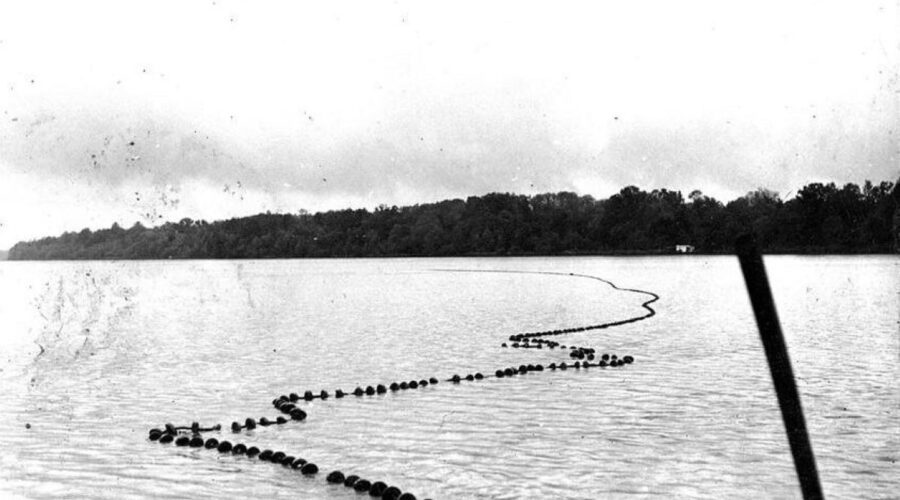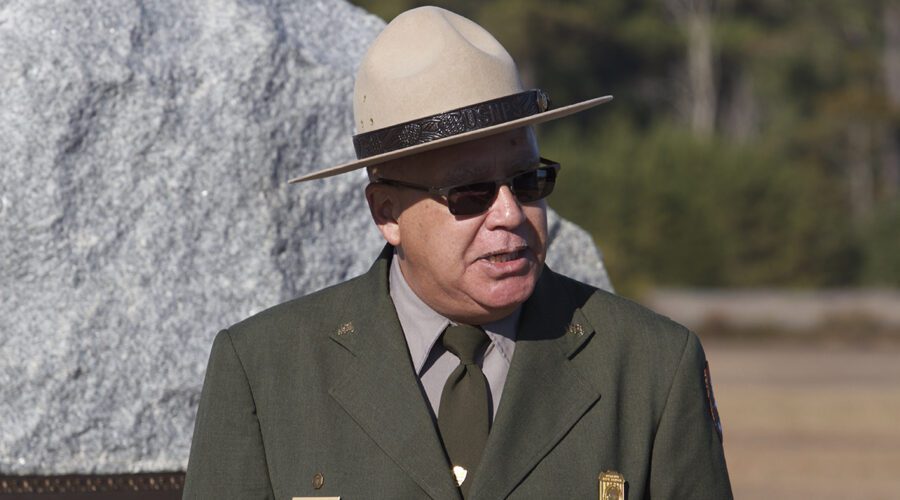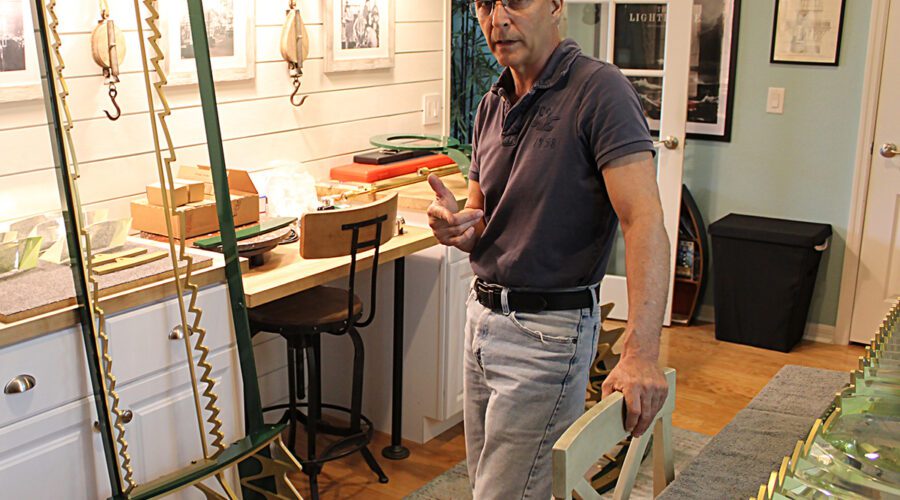An exhibit opening this weekend in Jacksonville features paintings by artist Rik Freeman of Washington, D.C., that depict stories of African American beach communities during the Jim Crow era.
Culture & History
Ocean City’s culinary traditions a beacon in turbulent past
Ocean City’s two community cookbooks are filled with recipes from families that spent their summers in the beach neighborhood on Topsail Island where Black residents could own property in the 1950s.
Coastal Cohorts cast off for 40th season with Carson tribute
Don Dixon, Jim Wann and Bland Simpson, collectively known as the Coastal Cohorts, are bringing “King Mackerel and the Blues Are Running” back for its 40th year and debuting their musical homage to Rachel Carson.
Our Coast: ‘Cast on shore, at a place called Ocracock’
On a recent trip to New Hampshire, historian David Cecelski pored over historic accounts and survivors’ sworn affidavits pertaining to shipwrecks, storm damage, insurance claims and the North Carolina coast.
Secotan Alliance event ‘to bring Wingina out of the shadows’
The program, “In the Spirit of Wingina 2: Our Women, Our Words, Our Water,” set for May 30-31 in Nags Head and Manteo will highlight Chief Wingina’s Secotan Alliance, and general Indigenous environmental history, with a concentration on the roles of women.
Historian David Cecelski: Carolina coast still worth the fight
The recent shackling of the Environmental Protection Agency “foreshadows the breathtaking descent back into the worst days of our coastal past, when our estuaries, our beaches, our fisheries and the sources of our drinking water were a free-for-all, open to plunder, pillaging and poisoning.”
Ocracoke Carvers Guild readies for 7th waterfowl festival
The celebration of Ocracoke’s waterfowl carving heritage is scheduled for April 11-12 in the Ocracoke School gym.
Documentary film project to focus on Down East resilience
Two University of North Carolina Wilmington professors and their students are creating a documentary about the 13 Carteret County communities in partnership with the Down East Resilience Network.
When fishermen harvested seaweed: Beaufort’s agar industry
The curiosity that sparked when historian David Cecelski came across photos taken in 1944 of fishermen harvesting seaweed near Beaufort inspired a “bit of a deep dive” into topics he never imagined studying: the history of agar, ecology of seaweed, the wartime crisis that led to seaweed harvesting and the construction of the Beaufort agar factory.
Bittersweet event: Restored Reaves Chapel to be dedicated
The long, challenging restoration of one of the oldest African American buildings in southeastern North Carolina is finally complete, albeit after the death of one who spent the last 15 years of his life fighting to preserve it.
AME Zion leader Cartwright left mark on Albemarle area
Born in Elizabeth City in the early 1830s, Andrew Cartwright established African American churches in northeastern North Carolina, was an agent of the American Colonization Society and the first missionary to Liberia.
Freedom Trail tells of Roanoke’s formerly enslaved people
Kip Tabb, an Outer Banks resident who reports for Coastal Review and other area publications, documents his walk along the Fort Raleigh National Historic Site’s Freedom Trail, which is lined with interpretive signs that illustrate the history of the Freedmen’s Colony of Roanoke Island.
Bertie native, NCCU dean: Coastal identity a cultural blend
Dr. Arwin Smallwood of North Carolina Central University says in the eastern part of the state particularly, Native, African and European cultures are blended into a shared identity “forged over hundreds of years.”
Working Lives: The Herring Fisheries at Plymouth 1939
Using photos taken in 1939, historian David Cecelski illustrates the final days of two of the oldest herring seine fisheries on the North Carolina coast.
Darrell Collins remembered for giving life to Wrights’ story
“He found a way to blend science and history and art to paint a picture that resonated with everybody that entered this building,” Scott Babinowich with the National Park Service Outer Banks Group said Saturday.
Dan Spinella replicates Hatteras lens parts piece by piece
The owner of Artworks Florida Classic Fresnel Lenses has been busy reproducing the 1,008 prisms and hundreds of other mechanisms and components as part of the project to restore the Cape Hatteras Lighthouse.

